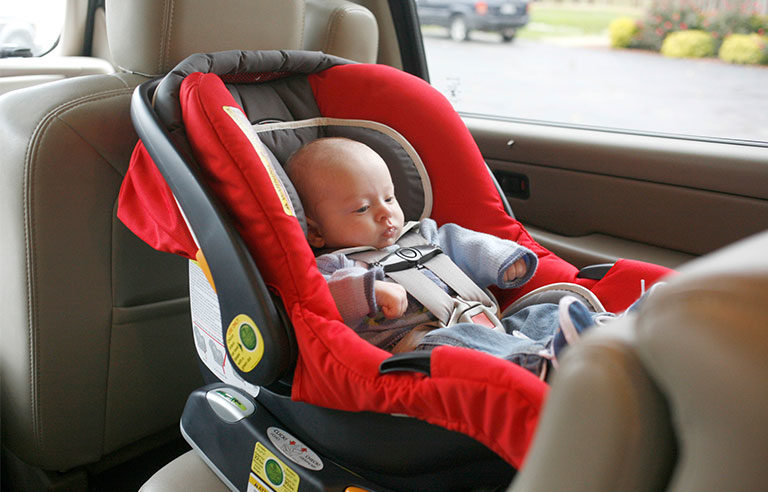Lawmakers call for technology to help prevent kids from being left in hot cars

Photo: NHTSA
Washington – In July 2008, Miles Harrison drove to work as if it were any other day. Except that Harrison had forgotten to drop off his 21-month-old son at day care, and ended up leaving the boy strapped in the back seat of his sport utility vehicle. A co-worker noticed the boy in the vehicle nine hours later. He had died of heat stroke.
Harrison hopes recently proposed legislation will help prevent other parents from experiencing a similar situation. Three lawmakers have introduced a bill in Congress that would require all new passenger vehicles to feature a warning system that sounds an alert when a child is left in a rear-seated position in a vehicle after the engine is shut off.
Reps. Tim Ryan (D-OH), Peter King (R-NY) and Jan Schakowsky (D-IL) introduced the Helping Overcome Trauma for Children Alone in Rear Seats Act, or HOT CARS Act of 2016, on Sept. 15. The legislation calls for the Department of Transportation to require alert systems in new vehicles by 2018 and to explore the costs of retrofitting existing vehicles with the systems.
“The belief is that it can’t happen to you, always someone else,” King said in a press release. “Unfortunately, it happens over and over again, even to the most conscientious parents. Technology is available and it can be placed in new vehicles to protect innocent children. It’s really that simple.”
Jackie Gillan, president of Advocates for Highway and Auto Safety, said in the release that a child can die in a hot car at any time during the year.
“I want to be very clear that this is not just a ‘seasonal’ problem. When summer ends, the problem will not end. These deaths are happening year round,” she said.
Nearly 800 children have died in hot cars since 1990, including 29 in 2016 as of press time.
Post a comment to this article
Safety+Health welcomes comments that promote respectful dialogue. Please stay on topic. Comments that contain personal attacks, profanity or abusive language – or those aggressively promoting products or services – will be removed. We reserve the right to determine which comments violate our comment policy. (Anonymous comments are welcome; merely skip the “name” field in the comment box. An email address is required but will not be included with your comment.)

